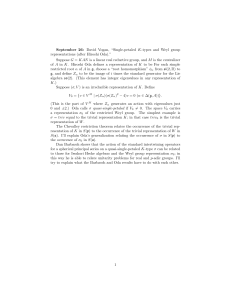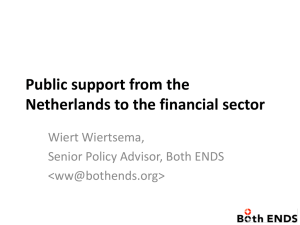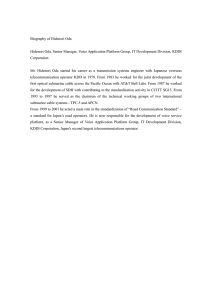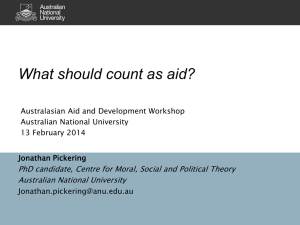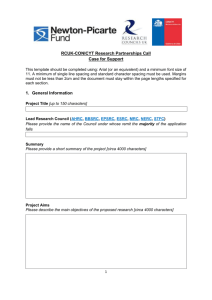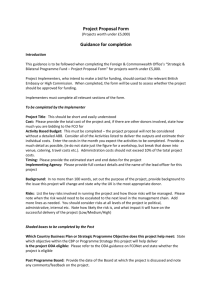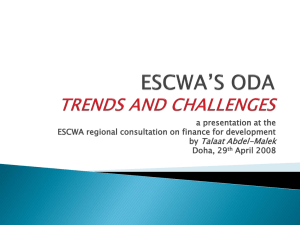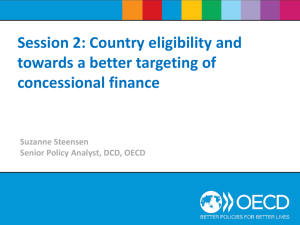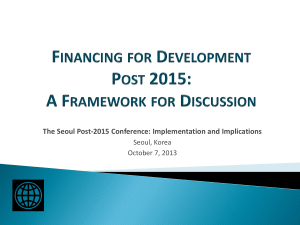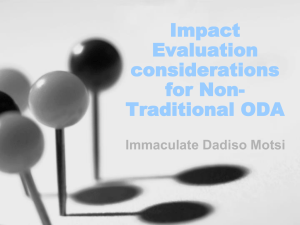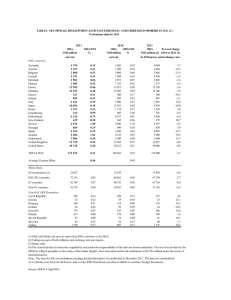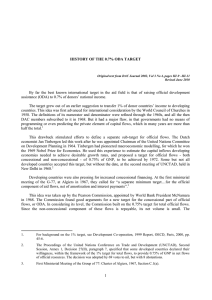Global Challenges Fund Briefing & Discussion Session 16 February 2016
advertisement
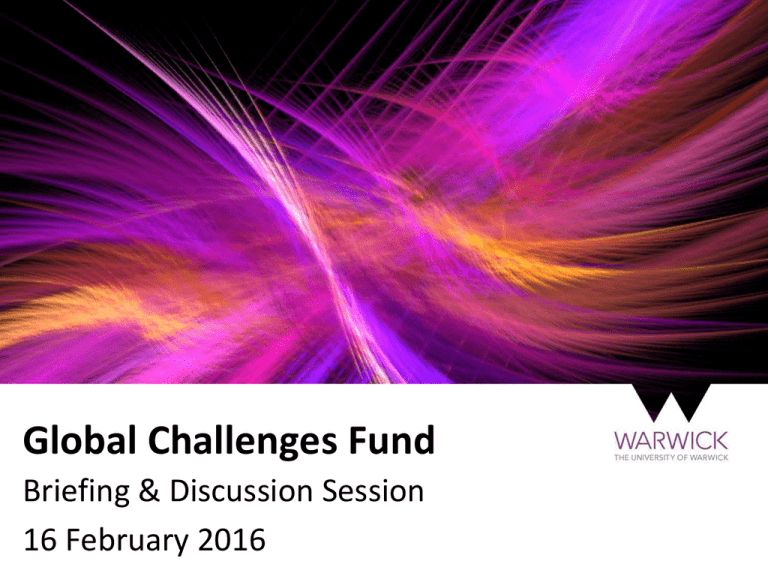
Global Challenges Fund Briefing & Discussion Session 16 February 2016 Background & Context Autumn 2015 statement announced £4.7bn for Science up to 2021 and £1.5bn for a Global Challenges Fund (GCF): – ‘to ensure UK science takes the lead in addressing the problems faced by developing countries whilst developing UK’s ability to deliver cutting-edge research’. Lack of clarity as regards final settlement for science – Not clear whether GCF represents additional investment – Uncertainties also remain with regards to HEIF, Innovate UK funding and the IAAs – Jo Johnstone: Newton Fund for international research to double from £75m p/a to £150m p/a by 2021 – Budgets will be formally allocated to funding bodies in mid February 2016 Administration Research Councils responsible for identifying potentially eligible activities Aligned to the OECD definition of ODA. Also relevant are the UN Sustainable Development Goals Funding is expected to come on stream this calendar year Expect opportunities to develop or expand ODA-relevant projects at short notice for work that can spend this calendar year Calls already announced by – – – BBSRC: List of projects requested; Warwick submitted 7 projects and I proposal for ‘pumppriming’ support MRC: £1M to tackle the Zika Virus. Closes 22 Feb 2016; Bids of £100-150k for 12-18 months; Jointly funded project with FACEPE following a call for applications from Newton Fund AHRC: Networking Scheme - Arts & Humanities contributions to debates around international development & UN 2030. ODA eligibility criteria applied. Closes 31 May 2016;Follow-on Fund – Enhance engagement with, and impacts from, AHRC funded research in ODA countries. Closes 31 May 2016 ODEC definition of ODA: RCUK Interpretation Projects are eligible if they: a) Aim to promote welfare & economic development of a country on the DAC list of ODA recipients (see handout) b) Are designed to address a development need; and c) Focus on developing country problems RCUK Interpretation ‘Only research directly & primarily relevant to the problems of developing countries…but costs may still be counted as ODA when research is carried out in a developed country’ Research proposal should evidence an immediate or longer-term impact on DAC countries; Does not need to be solely relevant to developing countries, but these should be the primary beneficiary/ies Capacity Building Research and innovation capacity building initiatives to support ODA countries to: – Increase the skills and knowledge base – Support the development of research infrastructure Should be aimed at improving ability of developing countries to undertake & disseminate research to maximise its impact on poverty and economic growth Next Steps How could potential ODA projects or programmes be aligned with existing RCUK portfolios: – for example by establishing or enhancing collaborations and institutional links with developing regions; pump-priming future joint centres and research programmes developing links with international strategic programmes Moving Forward – GRPs as a key vehicle – Confirmation of existing Warwick-ODA partnerships: R&IS and Global Engagement Team – Identify synergies between RCUK calls, Newton Fund, Student Mobility – R&IS support around key calls – Pipelining of potential projects – building on existing activities/partnerships – Disseminate knowledge of Global Challenges Fund and the eligibility criteria throughout academy and administration: via R&IS, Global Engagement, GRPs, Faculty Chairs, HoDs, Research Leads
